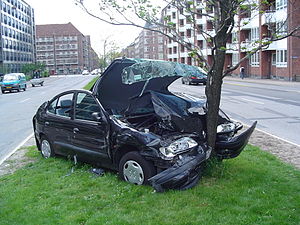Do You Really Need Car Insurance?
The answer to this question is a legal one - not all states require a driver to have car insurance, but those that don't require a driver to provide a financial responsibility bond in place of insurance. So either way you must show financial responsibility in some form or fashion. This leads us to the next question: How much insurance is needed?
Full Coverage: If you buy a new car and you have a loan on it, then your bank will require that you have full coverage. This means you have liability plus collision/comprehensive coverage on the vehicle. Once your loan is paid off, then you have the option to drop the collision/comprehensive coverage.
Limited Coverage: A used car sometimes has less value compared to the cost of collision insurance, and in these cases the owner may elect to drop the coverage on the car. What's left is the liability coverage.
Definitions
Collision Insurance: If you're involved in an accident, then collision insurance will cover the damages. You'll have to choose the deductible amount; this can vary from as low as $100.00 up to $1000.00. This is the amount you will pay before the insurance starts paying.
Comprehensive Insurance: This part of the insurance plan is generally combined with the collision policy. This insurance generally covers: fire, theft, vandalism, natural disasters, and falling objects.
Liability: If you choose not to cover your car, then most states still require that you maintain a liability policy for your car. Liability covers: personal injury (you, passengers, other parties), property damage, and medical payments. The amount of coverage will depend on how much of your personal assets you want to protect. Lawyers for the opposing team are known to go after your personal assets if your liability insurance doesn't fully cover damage to their client.
No Fault Insurance: It's hard to collect damages from someone who doesn't have insurance. This is why no fault insurance is offered. Not all states require a driver to carry no fault, but many drivers elect to buy it anyway. In the case the other driver does not have insurance, then your insurance company will pay for your damages from the accident - no matter who's fault it is.
Personal Injury Insurance: Some states, not all, offer this coverage. This coverage will reimburse your loss of income, medical expenses, and other covered expenses resulting from an accident.
Gap Insurance: When you drive a new car off the lot you immediately have depreciation. Gap insurance takes care of this, you can consider it "supplemental insurance" in case your car is totaled in an accident. Having gap insurance alleviates the headaches and disputes if your car is deemed totaled.
Working with a car insurance agent you trust is the key to buying the type of insurance you need. You may not need all of the options we discussed above; your agent will help you put together an insurance policy that fits your specific needs.
